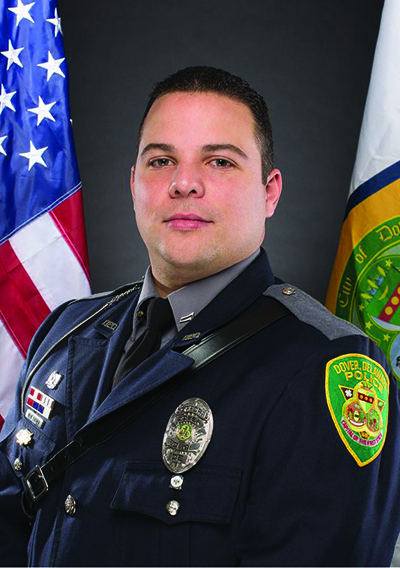Thanks in part to the sharing power of social media and hashtags, such as #BlackLivesMatter, there is now a spotlight on issues like racial bias in policing and other inequalities in the criminal justice system. In February, Google pledged $11 million to provide grants to organizations that use data to offer solutions for these pressing matters.
The technology powerhouse is no stranger to making a stand. Just last month, our sister site Technically DC wrote about the company’s Howard University West program, which was formed to provide STEM students of color the opportunity to learn from Silicon Valley executives, and we spoke to Delaware CIO James Collins about the effort and how the State was prioritizing diversity in hiring.
Impact Justice, Center for Policing Equity and Code for America are just a few of the organizations that will receive funds from this round of Google grants.
We had a chance to speak with Cpl. Mark Hoffman, Public Information Officer for the Dover Police Department, to learn how the force works to prevent racial basis and increase diversity.
What type of programs do the Dover police use to eliminate racial bias in their policing efforts?
There is a program we use to log all of the contact we have with any civilians. Whether it is a traffic stop, a wellness check, or if we’re just issuing a warning, we put everything in the program. We log the person’s age, race, gender, etc. If there is evidence of a pattern with any of our officers, it will be addressed. Besides using that program, we do extensive community outreach to get to the different cultural groups here. We have pretty good relationships with a lot of the community groups.
You said you have good relationships with the members of the community. Do you think that plays a role in how the community reacts to the police? Does it build a sense of trust?
It definitely enables us to be more transparent. The relationship between the police and the community also depends on the size of the community. We are a smaller city. There are 101 officers (although they are not all out on the street) and Dover has a population of between 30,000 and 40,000 people. It is easier for us to connect with the community on a more direct level.
What is one thing the Police Department is still working on when it comes to serving the community?
One of our biggest issues and something we hope to accomplish is having a department that matches the community we serve. We are always looking for ways to become more diverse and reach sectors of the community. We are doing a good job, but we could always do better.
Before you go...
Please consider supporting Technical.ly to keep our independent journalism strong. Unlike most business-focused media outlets, we don’t have a paywall. Instead, we count on your personal and organizational support.
3 ways to support our work:- Contribute to the Journalism Fund. Charitable giving ensures our information remains free and accessible for residents to discover workforce programs and entrepreneurship pathways. This includes philanthropic grants and individual tax-deductible donations from readers like you.
- Use our Preferred Partners. Our directory of vetted providers offers high-quality recommendations for services our readers need, and each referral supports our journalism.
- Use our services. If you need entrepreneurs and tech leaders to buy your services, are seeking technologists to hire or want more professionals to know about your ecosystem, Technical.ly has the biggest and most engaged audience in the mid-Atlantic. We help companies tell their stories and answer big questions to meet and serve our community.
Join our growing Slack community
Join 5,000 tech professionals and entrepreneurs in our community Slack today!

The person charged in the UnitedHealthcare CEO shooting had a ton of tech connections

The looming TikTok ban doesn’t strike financial fear into the hearts of creators — it’s community they’re worried about

Where are the country’s most vibrant tech and startup communities?


